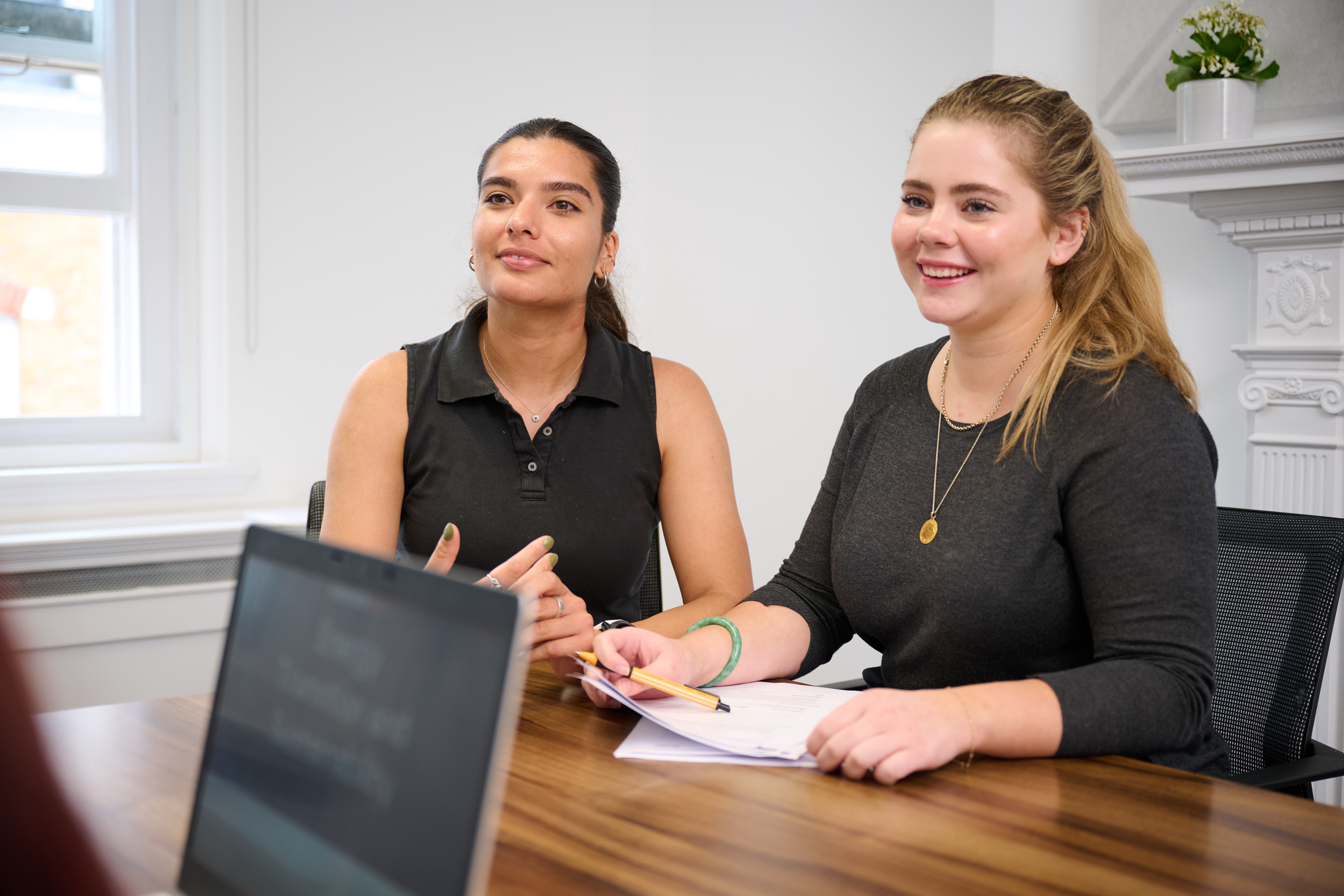Inclusion is a word we hear and see everywhere. It is incorporated into business strategy and town halls alike, and it fills social media. It is a core part of modern business, but inclusion is not just a pile of well-written policy documents. For it to be truly impactful, it has to be felt, lived, and worked. At Amey, inclusion is not just a word; it's a transformative force that inspires, drives change and provides the foundation for our people to thrive.
Why we built the unity group
Amey already had several brilliant Affinity Networks in place. Each one focused on supporting the different requirements of our employees, such as gender, race, disability, LGBTQ+, neurodivergence, veteran support or parental and caring responsibilities. Each network was undertaking some fantastic work. But they were working in silos. Their efforts were not always visible, and sometimes, even within the business, people did not quite understand what each network did or the benefits they brought to the company, not just from a people perspective, but the networks' impact on strategy and policy.
It became apparent that the networks could be more effective by working more innovatively and collaboratively.

Uniting and working through an intersectional lens became essential because we are not just one thing; our identities are a beautiful jigsaw puzzle of all the different parts that make us who we are. For example, someone might be navigating a disability and also be part of the LGBTQ+ community. Or be a woman of colour managing menopause while leading teams on-site.
That's when the idea for the Unity Group came to life. I didn't want to strip the individuality from each network. Instead, I wanted to create a space where their voices could be amplified collectively, where we could plan campaigns together, avoid duplication, and, most importantly, ensure insights from employees flowed upward into the business and into real decisions. It's a collective effort, and everyone must have a voice.
Every month, we bring together our Affinity Network chairs, allies, ESG leads, and comms partners not just to tick boxes, but to think boldly. It’s a space where we challenge each other, share what’s working (and what’s not), and co-create with one clear purpose: to make sure every person at Amey feels seen, supported, and safe to show up as their whole self.
The business case for inclusion
When we talk about inclusion, we often focus on the moral case, and rightly so. It is about fairness, equity and doing right by our people. But sometimes, we forget the business case. The truth is that inclusion is both. When employees are truly valued, listened to, supported and feel safe to be their whole selves, they thrive. When we are happy and secure, we do our best work. Inclusion is good for business. It's not just the right thing to do; it's also strategically beneficial for our company.
Boston Consulting Group found that companies with inclusive cultures report up to 19% more innovation-driven revenue. At Amey, we’ve seen this firsthand. It is why inclusion is not just a value, it is embedded into our business strategy, especially through our approach to ESG: Environmental, Social and Governance. For us, the “S” in ESG is where people live. It’s where culture, wellbeing, fairness, and equity take shape. And we see it as a critical part of our value proposition, not just for our employees, but for our clients too.
There is a growing body of evidence backing this up. Inclusive companies are 1.7 times more likely to be innovation leaders, and those with high racial diversity can see up to 15 times higher revenue. That value extends into how we recruit, with a company-wide goal of 40 per cent female, and 14 per cent multicultural representation by 2030.

Embedding diversity and inclusion into recruitment does not just broaden the talent pipeline; it sends a clear signal to candidates, especially those from underrepresented backgrounds, that we’re serious about building an inclusive culture. Our people teams have developed an inclusive recruitment training programme for the recruitment teams and line managers. McKinsey & Company put it well: Hiring diverse talent isn’t enough — it’s the workplace experience that shapes whether people stay and thrive. And that is exactly what I have seen, time and again. Inclusion creates the conditions for people to challenge, innovate, and lead. When people feel seen and supported, they bring their best thinking. They stay longer. They build better. Our employees are not just beneficiaries of our inclusion initiatives; they are the driving force behind our success.
How Amey’s networks deliver strategic value
Since we launched the Unity Group, I have watched our Affinity Networks grow from internal communities into agents of real organisational change.
Take our Pride Network, for example. They co-developed Amey's Gender Identity Policy, something we knew had to be driven by people with lived experience, not written in isolation. The policy formalises protections for trans and nonbinary staff.
Our Diversability Network, played a key role in shaping our Domestic Violence Policy, one of the first in the sector. That same network helped us become a Disability Confident Leader (Level 3) a recognition we are proud of.
Women@Amey has had a lasting impact, too. Their advocacy for inclusive PPE led to concrete changes in procurement. This groundbreaking initiative has won several awards for ensuring our protective clothing equipment supports not only women but also employees with disabilities and those who require religious head coverings. That is inclusion in action, not just creating policies but transforming the day-to-day experience of our frontline colleagues.
These networks are not just places to connect or run events; they are shaping policy, improving delivery, and giving our people a voice in how the business is run. Our work has not gone unnoticed. The work our affinity networks undertake has been shortlisted for several awards. Most recently, our Move You in Boxes for our Armed Forces was recognised with a highly commended award at the British Diversity Awards, and our Pride Network won Best LGBTQIA+ Network at the Rainbow Honours Awards. Incredible achievements that recognise the outstanding work the Networks are undertaking together. This has resulted in other organisations reaching out to learn how we built the Unity Group model and how it’s driving real change from the inside out.
What’s next for the Unity Group?
Mental well-being has become a central focus for both Unity and the wider organisation. We recognise that good mental health is essential not just for individual resilience, but for fostering a culture of inclusion and psychological safety. Understanding how mental health and inclusion intersect across different experiences is key to supporting our people. Over the coming months, we will be running focus groups, hosting Lunch & Learn sessions with mental health professionals, and continuing to evolve the Unity structure to ensure we continually develop and improve to understand and meet the needs of all our people.
It is genuinely inspiring to see how far the Unity Group has come. I am proud to be part of an organisation that prioritises inclusion and of the exceptional work our affinity networks continue to deliver.
Last year was all about laying the foundation. This year is about scaling what we have built and responding more directly to what our people tell us. Inclusion starts with understanding, and that means creating a workplace where people can contribute confidently, knowing their perspectives are recognised and respected.
